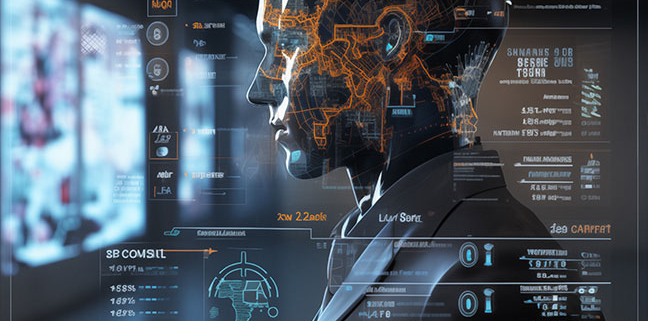- Unlock the potential of AI in Digital Media - 4. December 2023
- This was created with the Help of Ai. - 4. December 2023
- Gaming in a nutshell: what kind of personas should brands look out for? - 26. July 2023
- Gaming as a communication channel - 7. December 2022
- THE RISE OF THE INDEPENDENT MEDIA AGENCY - 7. December 2022
- HOW YOUR BRAND CAN HELP SAVE LIVES - 12. September 2022
- Enhancing the Digital Media Landscape with Blockchain - 8. June 2022
Karim Mroueh, Digital and Social Lead at Serviceplan Group Middle East
As we progress in the technological innovation, we should consider the enormous changes artificial intelligence is bring to our life. I have been following an interesting trend in AI development that is based on the characteristic of humans: there is a certain amount of what I like to refer to as “Human selfishness” that is dominating people’s reactions. This phrase sums up how we naturally respond to technologies that invade domains that we think are exclusively human.
Consider the development of robotics. Robots had long been a feature of our industrial and scientific environments, but it wasn’t until they began to carry out activities that were fundamentally human, from walking, talking, and listening to interacting in real-time, preparing pizzas to even serving, that the public began to take an interest in them. Not only is there freshness to this rise in curiosity, but we also find ourselves reflected in these robots.
With AI, a similar pattern became apparent, especially after ChatGPT and its equivalents were introduced. Artificial intelligence (AI) has long been present in our daily lives, from movie recommendations to sentence completion suggestions on smartphones. But what really got people interested was AI’s capacity to have human-like interactions. The combination of curiosity and FOMO is what is causing this boom of interest. Not only are we captivated by the capabilities of AI, but we also worry about falling behind in this quickly developing digital era.
The change in our collective question, however, is arguably the most fascinating aspect of AI’s progress. From “Can AI think and do like a human?” to “What can’t AI think and do like a human?” is the new question. This move represents a fundamental shift in how we view the potential of AI. We are approaching a new era of possibilities with the growth of 5G, the improvements in processing power, and the ongoing evolution of data.
I see AI changing perceptions and connecting dots, transforming believes in different fields.
AI is changing the traditional belief that creativity is a unique to humans in the creative industries. AI has a massive impact on healthcare, enabling personalized treatments and transforming diagnostics.
The development of autonomous vehicles demonstrates AI’s capacity for real-time decision-making and complex environment navigation. But the real innovation in AI is in the way is the knowledge democratization. It is opening high-level skills to everyone. It is empowering and enlarging horizons.
The discussion about AI’s potential is moving from its “capabilities” to “our decisions and responsibilities when we use this technology more and more into our daily lives.”
In summary, the story of AI’s future is one of redefining the human experience rather than merely one of technical progress. It’s about rethinking what’s possible and venturing into the unknown. As we proceed on this path, we should be more concerned with using AI to advance humankind than just innovation. Not only is there a question of what AI can accomplish today, but also of what we will decide to do with it.



